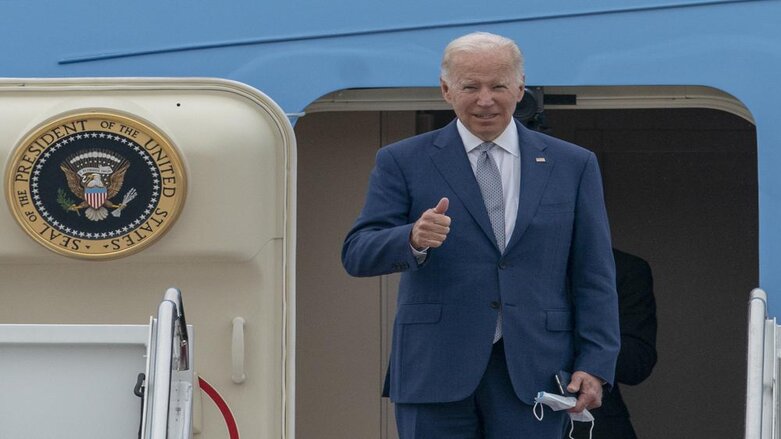White House: ‘Committed to our long-standing partnership with the Kurdistan Region’

WASHINGTON DC (Kurdistan 24) – US President Joe Biden will travel to the Middle East next month, from July 13 to 16. After stops in Israel and the West Bank, he will fly to Jeddah, Saudi Arabia, for a summit meeting of what the US calls “the GCC [Gulf Cooperation Council] + 3”—Iraq, Jordan, and Egypt.
Read More: Biden to meet Iraqi leadership on Middle East trip
Biden will meet the leaders of nine countries—six from the GCC, in addition to Iraq, Jordan, and Egypt—in that diplomatic event.
Possible KRG Representation at the Jeddah Summit
Representatives of the Kurdistan Regional Government (KRG) have been included in official Iraqi delegations in the past in both bilateral meetings with US officials and in multilateral fora.
Asked by Kurdistan 24 if the KRG would be represented in the Iraqi delegation that meets with Biden in Jeddah, a White House spokesperson suggested that was an issue for Baghdad to decide, but she also affirmed the White House’s continued commitment to the Kurdistan Region.
“We defer to national governments on the makeup of their delegations,” she said, before adding, “We, of course, remain committed to our long-standing partnership with the Kurdistan Region of Iraq, and we look forward to continued engagement.”
Thus, it is quite possible that the KRG will be represented within the Iraqi delegation at next month’s summit.
Biden Administration’s Friendliness toward the Kurdistan Region
When Biden assumed office in January 2021, he had had more foreign policy experience than any president since George H. W. Bush (1989-1992).
Biden was a senator for over three decades—1973-2009—before he became Vice-President in Barack Obama’s administration (2009-2017). As a senator, he was a long-time member of the Senate Foreign Relations Committee and became familiar with—and sympathetic to—Kurdish concerns.
In late 2017, when he was a private citizen, this reporter chanced to see him at a local grocery store. People were gathered around him, asking questions, and I joined in, somewhat critical of the Obama administration’s policy toward the Kurds.
Biden responded, “Masoud Barzani is a good friend of mine. And I wished we could have done more for the Kurds.”
“Why didn’t you?” I responded. “Turkey,” he replied.
Read More: Joe Biden—‘Good Friend’ of Masoud Barzani—becomes America’s 46th President
Turkey is still there, and, if anything, it is more important to the US than it was in 2017 because of the Ukraine crisis.
Nonetheless, the Biden administration has articulated a position friendlier to the Kurdistan Region than any of its predecessors. That was signaled already in April 2021, a few months after it took office when two senior officials addressed a webinar hosted by the KRG mission in Washington on the thirtieth anniversary of Operation Provide Comfort.
Read More: Biden administration: We have a ‘strategic partnership’ with the Kurdistan Region
Both Brett McGurk, National Security Council Coordinator for the Middle East and North Africa, and Dana Stroul, Deputy Assistant Secretary for Defense for the Middle East, referred to Washington’s relations with Erbil as a “strategic partnership.”
Thursday’s statement by the White House spokesperson to Kurdistan 24, emphasizing a continued commitment to its “long-standing partnership with the Kurdistan Region,” was entirely consistent with the position laid out last year by McGurk and Stroul.
It was also consistent with the message conveyed earlier on Thursday by Washington’s new ambassador to Iraq, Alina Romanowski, who presented her credentials to the Baghdad government as the top US envoy in Iraq on June 2.
On June 16, she traveled to Erbil and met with the Prime Minister of the Kurdistan Region, Masrour Barzani. She affirmed that the US would continue supporting the Kurdistan Region, which she described as an “important partner.”
